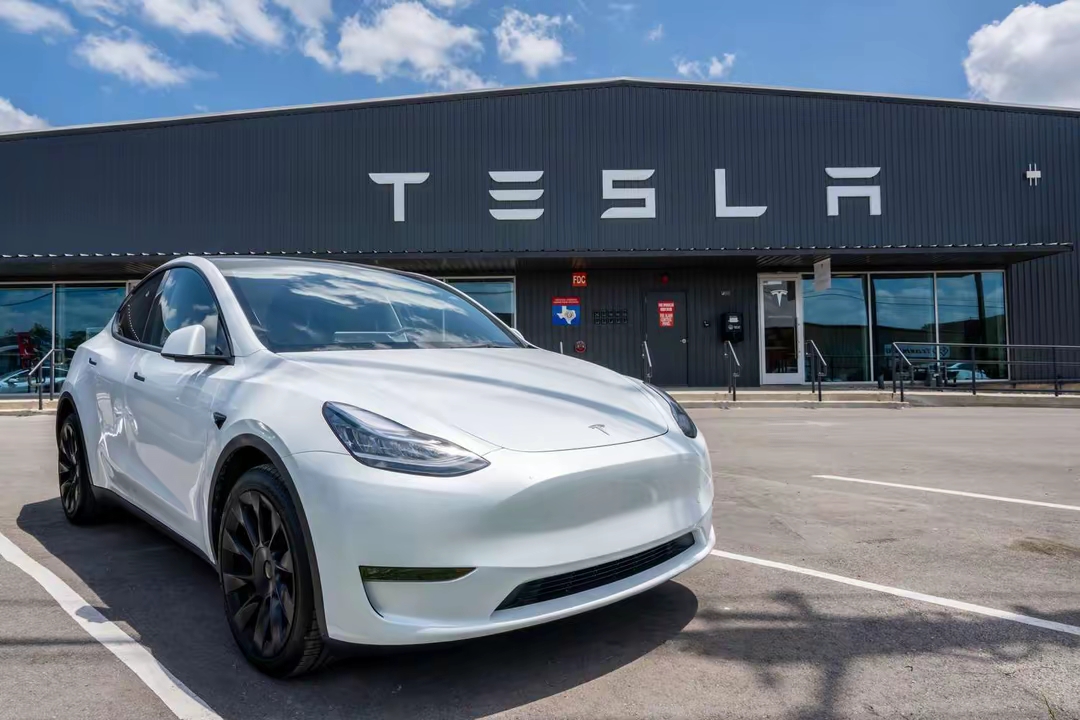
Recently, Tesla, the leading company in the electric vehicle industry, has encountered a Waterloo in the European market, with a significant decline in sales. This phenomenon has not only attracted widespread attention within the industry, but also raised doubts among many investors and consumers about Tesla's future development prospects in the European market. By delving into the underlying reasons, we can gain a clearer understanding of the competitive landscape and development trends in the global electric vehicle market.
From the data, Tesla's sales in multiple European countries have experienced a staggering decline. In January of this year, Tesla's sales in the European market were only 9900 units, a year-on-year decrease of over 45%, and the market share of new car registrations decreased from 1.8% in the same period last year to 1%. In Germany, which has a Tesla Gigafactory, the number of new car registrations plummeted by 59.5% year-on-year; In France, sales have decreased by 63%; Norway's registration volume has decreased by 38%; The registration volume in the UK has decreased by 8% year-on-year. However, the overall sales of pure electric vehicles in Europe increased by 37% year-on-year in January, reaching 166000 units. Tesla's decline is in sharp contrast to the booming development of the European electric vehicle market.
Tesla's sales have plummeted in Europe, primarily due to intense market competition. With the rapid development of the global electric vehicle market, many traditional car manufacturers have increased their investment in the electric vehicle field and launched competitive models one after another. In Europe, established car companies such as Volkswagen, Mercedes Benz, and BMW have rapidly expanded into the electric vehicle market with their profound technological accumulation and brand influence. Volkswagen ID The series models have performed well in the European market, with the ID.4 surpassing the Model Y in sales in Germany for six consecutive months. These traditional car companies not only have an advantage in brand awareness, but also have more complete product layout, sales channels, and after-sales service, which has formed a strong squeeze on Tesla's market share.
Tesla's own product and strategy issues cannot be ignored. On the one hand, Tesla's model lineup in the European market is relatively single, mainly relying on the Model 3 and Model Y models, lacking diversity and difficult to meet the diverse needs of different consumers. Moreover, since the launch of Model Y in 2020, Tesla has failed to introduce new mainstream models, resulting in a slow pace of product updates and replacements. Competitors continue to innovate, causing Tesla to gradually fall behind in product attractiveness. On the other hand, Tesla suspended production at some factories at the beginning of the year to adjust the Model Y production line, which led to a short-term decrease in production and delivery delays. Many consumers chose other brands due to long waiting times.
The damaged brand image is also an important reason for Tesla's declining sales. Tesla CEO Musk's frequent political statements and inappropriate behavior have had a negative impact on the brand image. Musk publicly supports Germany's far right political party, the Alternative Party, and has formed an alliance with anti emissions politicians in the UK, even being exposed for making Nazi salute gestures in public. These controversial actions have sparked strong resistance from European consumers, many of whom have developed resentment towards the Tesla brand due to Musk's political stance. A public opinion poll shows that 59% of British electric vehicle owners and potential buyers say that Musk's influence will make them unwilling to buy Tesla; According to market research in Sweden, only 11% of respondents have a positive evaluation of Tesla.
The sharp decline in Tesla sales in multiple European countries is the result of multiple factors working together. Faced with difficulties, Tesla needs to re-examine its localization strategy in the European market. In terms of products, accelerate the development and launch speed of new products, enrich the lineup of car models, and meet the needs of different consumers; Optimize production processes, improve production efficiency, ensure stable supply and timely delivery of products. In terms of brand building, Musk should be cautious in his words and actions, and repair the brand image damaged by political disputes; Intensify market promotion efforts to enhance brand awareness and reputation. In terms of service, strengthen the construction of after-sales service network and improve the quality of after-sales service; Accelerate the construction of charging facilities to solve consumers' charging difficulties.
For the entire electric vehicle industry, Tesla's setbacks in the European market have also sounded an alarm for other companies. The market competition is constantly changing. In order for enterprises to stand undefeated in the fierce market competition, they must constantly innovate, improve product competitiveness and service quality, pay attention to market dynamics and changes in consumer demand, and actively respond to various challenges.

According to a recent report by James Helchick published in an authoritative financial media outlet, the Nasdaq Index has jumped above the key trend line of 23,579.10 points, aiming for the historical high of 24,019.99 points.
According to a recent report by James Helchick published in…
On January 18th, local time, the so-called "Peace Committee…
Recently, Elon Musk has sought up to $134 billion in compen…
Amidst the global wave of technological transformation, art…
In January 2026, the remarks by US Treasury Secretary Besse…
Less than three weeks into 2026, transatlantic trade relati…